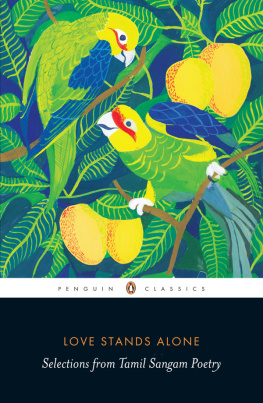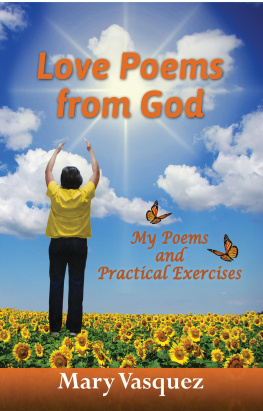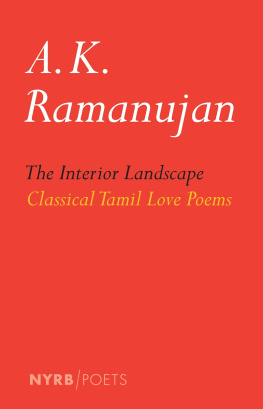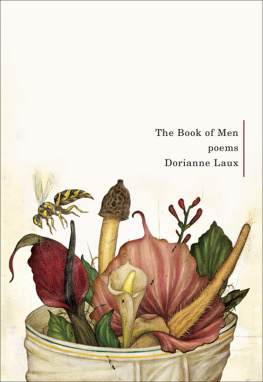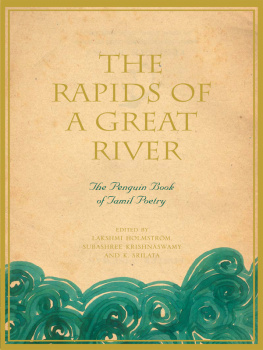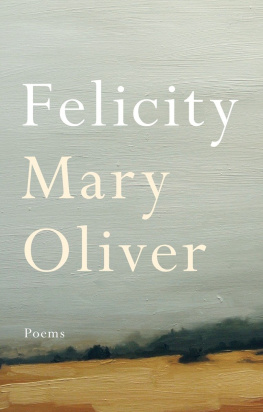M.L. THANGAPPA taught Tamil for over twenty-five years in the various colleges of the Puducherry government until his retirement in 1994. He has published a number of books of poetry and essays in Tamil and has translated from Tamil into English Sangam poetry, and the songs of Ramalinga Swamigal, Subramania Bharati and Bharathidasan. He was awarded the Bharathidasan Award (1991) and the Sirpi Literary Award (2007) for lifetime achievement in poetry. He has won the Sahitya Akademi awards for both childrens literature and translation. His translation of
(edited by A.R.
Venkatachalapathy). A.R. VENKATACHALAPATHY has taught history at Manonmaniam Sundaranar University, Tirunelveli, the University of Madras and the University of Chicago. Currently he is professor at the Madras Institute of Development Studies, Chennai. He has published widely on the social, cultural and intellectual history of colonial Tamil Nadu, both in Tamil and in English.
Praise for the book
For those who cannot read them in the original, poems can only be as good as their translators. In this respect, the poets of the Tamil anthologies have been very fortunate, perhaps more so than any other group of Indian poets, past or present. Beginning with A.K. Ramanujan, theyve had a chain of exceptional translators, in which M.L. Thangappa is the most recent, and in some ways the most surprising, link.
The surprise lies in the fact that Thangappa is a Puducherry-based Tamil teacher, whereas I had always thought that the best translations of Indian poetry would be made by scholars working in the Western academy. The 160-odd poems in Love Stands Alone are often quite short, though theres enough going on in them to fill a chapter in a fat novel. Keeping the voice low, the tone level, they say the most heartbreaking, or urgent, or joyful things. This is why were still listening to them, our ears pricked, after 2000 years. luckily for us, Thangappa translates several of the longer poems too. Reading them is like watching one of those folk performances in which women dance while balancing pots on their heads.
You watch with your heart in your mouth, for one false step can bring the whole thing crashing down. But Thangappa carries it off again and again. More than once I caught myself whistling.Arvind Krishna Mehrotra M.L. thangappas translations from the Sangam anthologies possess a rare precision and accuracy, crafted in a voice that is vivid, supple, and uniquely his own. Classical Tamil and modern English are separated by what can seem like unbridgeable distances of time, form, idiom and culture. Yet, reading Thangappa, I am surprisedeven astonishedto find the thought of south Indian poets of two millennia ago newly, and seemingly effortlessly, embodied.Whitney Cox, School of Oriental and African Studies Among the qualities of this corpus of poetry are its diversity of situations and its vivid relation of the natural world to human moods and predicamentsMint Life is impermanent, most art sinks without a trace, even the true names of these bards are lost, but something elemental endures in this literature.
Only that which is timeless remains. What Thangappa, one of many torchbearers, passes down in Love Stands Alone is a triumphNew Indian Express Penguin has been bringing out gems from rich Indian literature and this latest volume from the Sangam poetry definitely is a jewelOrganiser [T]he epithet ancient wisdom was used for them many of them were elegant versifiers, amiable companions, consummate courtiers, and venerated wise men all in one. It was this many-sided personality of the bards, which gave them a distinct identity and scope of expression that has secured their position in history. In later ages the poems of these bards soon came to be considered unique. The exclusive expression canror ceyyul, poetry of the noble ones was especially used for their works. K. K.
Kailasapathy, Tamil Heroic Poetry
Akam
Butterfly with beautiful wings
Butterfly with beautiful wings, living by sucking nectar, tell me honestly, is there any flower known to you more fragrant than the tresses of this girl my most dear friend who has close-set teeth and a peacocks graceful mien?
(what the lover said, addressing the butterfly, the girl overhearing)
Kurinji Iraiyanar
KURUNTHOKAI 2
Larger than the earth
Larger than the earth, vaster than the sky, and immeasurably deeper than the seas is my love for him from the hills where the honeybees make abundant honey from the black-stemmed Kurinji flowers.
(what the girl told her friend about her devotion to her lover)
Kurinji Devakulathar
KURUNTHOKAI 3
Like a puppet
This man from the village where the
valai fish in the wet field snatches away a ripe mango falling beside the field has gone back to his sons mother throwing to the wind all his promises to me. He now kow-tows before that woman like a puppet lifting his hands and legs as she pulls the strings.
(what the concubine said about the husband, the wifes people overhearing)
Marutam Alankudi Vanganar
KURUNTHOKAI 8
Out for any shame
One is desperate to ride a palm-stem horse, to wear a wreath of milkweed buds and be a laughing stock of the marketplace. One is out for any shame when the blinding passion of love overwhelms the heart.
(what the lover told the girls friend)
Kurinji Pereyin Muruvalar
KURUNTHOKAI 17
Loves fondness
If it be strength to shake off love and kindness and depart in pursuit of wealth leaving us to languish, let him be strong. And let us womenfolk be fools in our fondness.
(what the girl told her friend on her husbands departure)
Palai Kopperuncholan
KURUNTHOKAI 20
A herons witness
When my lover wedded me secretly, there was no witness but the cheat himself. If he goes back on his pledge what can I do?
But there stood a heron on slender, greenish legs shaped like a millets stem looking for fish in the shallow stream.
(what the girl told her friend, fearing the lovers dalliance)
Kurinji Kapilar
KURUNTHOKAI 25
Like the sweet milk
Like the sweet milk of a cow spilt on the ground going to waste without being sucked by the calf or collected in a vessel, the speckled beauty of my complexion is being eaten away by the pallor of lovesickness, neither enjoyed by my lover nor retained by me.
(what she told her friend)
Palai Velliveethiyar
KURUNTHOKAI 27
The fire of love
I feel an urgency to get up and smash things, to knock and break my head, to send out violent shrieks as if in mad frenzy. This cool night breeze kindles the fire of love in me.

